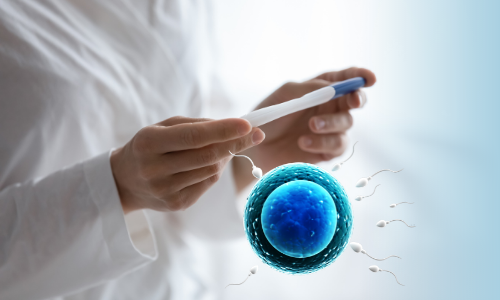Do you have an Ovulation Disorder?
Wednesday, May 25, 2022
When you start your fertility journey, one of the first things your specialist will look at is whether you are ovulating monthly.
“Regular Periods” are about every 28 days but It’s common for periods to fluctuate a month or two each year and still be considered regular.
However, if you have irregular periods or don’t have periods at all, your physician will conduct a series of tests to see if you have ovulatory disorders.
Ovulatory dysfunction is a common cause of female infertility. Up to 40% of infertile people with ovaries experience dysfunctional ovulation.
When a woman is anovulatory, they cannot get pregnant because there is no egg to be fertilized. If a woman has irregular ovulation, they will have fewer chances to conceive because they ovulate less frequently.
Late ovulation does not produce the best quality eggs, which can also make fertilization less likely. Additionally, irregular ovulation usually indicates there is something off about a woman’s hormone levels.

Ovulation disorders
A primary cause of an ovulation disorder involves dysfunction in your endocrine system, the system that regulates your reproductive hormones. This dysfunction can lead to conditions like:
– Polycystic ovary syndrome (PCOS): One of the most common causes of anovulation, it causes a hormone imbalance, which affects ovulation. it causes women’s bodies to produce higher levels of androgen, a male hormone, so your body faces a hormonal imbalance, which can delay PCOS ovulation or in some cases, completely stop it. PCOS is associated with insulin resistance and obesity, abnormal hair growth on the face or body, and acne.
Premature ovarian failure: This is a decrease in ovarian function before the age of 40, which happens because of a lack of oocytes in the ovary. Your body also begins producing less estrogen.
Hypothalamic dysfunction: Your pituitary gland produces two hormones, follicle-stimulating hormone (FSH) and luteinizing hormone (LH), that stimulate the ovulation process each month. Excess body weight, stress, or significant weight loss can disrupt your body’s production of FSH and LH hormones as well as your usual ovulation cycle.
Hyperprolactinemia: Normally, prolactin levels are higher during pregnancy breast development. Otherwise, high levels can disrupt your menstrual cycle because of reduced estrogen production and may cause infertility. Hyperprolactinemia happens because of different health concerns, like hypothyroidism, and it results in an inconsistent and irregular period. This can also be caused by medications you’re taking for another condition.
Also, there are common reasons ovulation doesn’t occur as such stress, lifestyle factors, hormone imbalances, NSAIDS, weight, and excessive exercise
Treatment Options
The treatments for anovulation will depend on what is causing it and are focused on improving the quality and frequency of ovulation. Some treatments include:
– Fertility medications: Both oral and injectable fertility medications can stimulate the ovaries to produce and release eggs.
– Lifestyle or diet changes: Some cases can be treated with changes to your lifestyle or diet. Keeping the weight at optimal levels, regular exercise, and stress relief methods are suggested. For example, if your low body weight or extreme exercise habit is the cause of anovulation, gaining weight or easing up on your workout routine might be enough to restart ovulation. The same is true when anovulation is caused by obesity.
– Thyroid hormone replacement therapy: For patients with hypothyroidism or hyperthyroidism, thyroxine (T4) helps bring thyroid levels back into healthy ranges.
In vitro fertilization (IVF): It is a type of assisted reproductive technology that involves extracting your eggs and combining them with a sperm sample outside of your body. The resulting embryo is then transplanted into your uterus. If you’re missing periods or haven’t been able to achieve a pregnancy after a year of unprotected sex, schedule a diagnostic evaluation for an ovulation disorder







